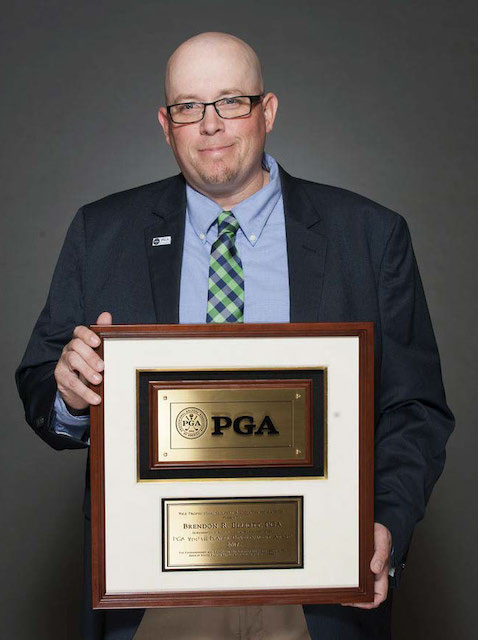
July 12th, 2023

One of the things that sets golf apart from most other sports is the challenge it presents from a mental and emotional aspect. These attributes are difficult areas to tackle for any golfer, let alone a pre-teen or teenager. Many times, when a young golfer struggles, the mental and emotional challenges are very often what causes the most difficulty.
With this in mind, many coaches of young golfers try to keep fun and enjoyment at the forefront to avoid making the game too serious.
However, when a young golfer has reached a certain level of proficiency from a skill standpoint, and competition is the next step, you must treat playing the game with some seriousness. When this is the case, and tournament pressure comes into play more often, the challenges of the mental and emotional aspects that golf presents can become a mighty obstacle.
Whenever I need to consult with someone about this topic, I often turn to Dr. Joe Parent, author of ZEN GOLF: Mastering the Mental Game and GOLF: The Art of the Mental Game.
Dr. Joe had much to offer me as I recently talked to him about this topic. His practical approach is just what the doctor ordered for any young golfer struggling with their mental and emotional game. The following are some thoughts that Dr. Joe wanted to share…
Too Many Thoughts:
Overthinking the result you want from a shot can get in the way of executing it properly. It can make you tight with tension or excited with anticipation. Either way, it interferes with the flow of your routine and your swing. A better approach is to put your focus entirely on the following four-step process:
- Choose a target that will leave you in the position you want without too much risk of landing in trouble. Have a good image of the shot you want to play to that target.
- Feel the swing you want to make to produce that image.
- Commit to that swing. Keep a smooth flow throughout your routine and as you address the ball. Commit to a good tempo through your swing.
- Take care of the process that way, and the results will take care of themselves.
Get Out of Your Own Way: Your Subconscious Mind
Have you ever hit a shot when it felt like you weren't really trying to make it come out any particular way? The results are usually surprisingly good.
It may feel like you're not in control, but that's because you're used to trying to control your swing with your thinking mind. In fact, you haven't lost control—you've just transferred it to your subconscious mind. You've gotten out of your own way, which lets you play your best golf.
Here's a technique for intentionally turning over control to your subconscious mind. Before each swing, mentally say something to your body such as, "It's all yours," or "OK, take over." That signals the thinking mind to let go, allowing the subconscious mind to guide the body in swinging the club without conscious mental interference. When you do that, the very best swing your body knows how to make will show up time after time.
Plan with your head but play from your heart to get the most out of your game.
Keeping Your Emotions in Check:
After a poor shot, most of us have an initial reaction of anger or frustration. Emotional reactions imprint more strongly in our memories than ordinary experiences. They get a unique "tag" because of the energy associated with them. We're hard-wired that way. That's why it's best to get more excited about your good shots and less upset about your bad ones.
If you stockpile negative memories about a situation on the golf course (or elsewhere in your life), your confidence will be undermined. You'll be more likely to expect poor results in similar situations. And when you think that way, those expectations are likely to be fulfilled.
Not only do negative emotions imprint bad memories, but they also limit your ability to learn from what just happened. Insight does not appear during emotional upheaval. Therefore, it's essential to clear a negative emotional response to a shot as soon as possible. If you can keep your cool, you can reflect on what went wrong and adjust accordingly.
When you get upset, step aside, take a deep breath, and swing the club back and forth in an easy rhythm, focusing on the flowing feeling. The heat of emotion will subside more quickly that way, and it will be less likely to spoil the rest of your round.
Another Tip For Better Emotional Control:
Getting upset over a bad shot is understandable. And a few seconds of emotion isn't really a problem. The problem comes from carrying it with you in a way that negatively affects the next shot and leads to a downward spiral of poor play.
It's OK to get mad but then get over it. You can use a ten-second or ten-pace rule. You allow yourself to be mad about a shot, but only for ten seconds or until you have walked ten paces toward the next shot. From then on, let go of the last shot and focus only on the one in front of you.
Here's a routine you can use to clear negative emotions:
After the intensity of your initial reaction passes, take a deep breath or two. Feel the negativity flow out as you exhale, and channel the energy into a positive process. Make one or two practice swings until you make the one you would have rather made on the previous shot. The difference you feel tells you what you need to do to best prepare for your next shot.
This post-shot routine gives you two benefits as you walk away from a bad shot. Your last swing is a good one rather than a bad one, and your focus turns away from negative emotions and toward a positive feeling for what you must do to make the next shot a good one.
Practicing the swing, short game, and putting are all critical aspects to focus on in the pursuit of improving. The same can be said for the mental and emotional side of the game. I strongly advise parents to incorporate exercises like the ones above that Dr. Joe shared. You can also find great PGA Coaches in your area at https://www.pga.com/coach. These highly skilled Professionals can assist your child with these parts of the game or refer you to folks like Dr. Joe, who specializes in Mental Coaching.
Camps instructed by



